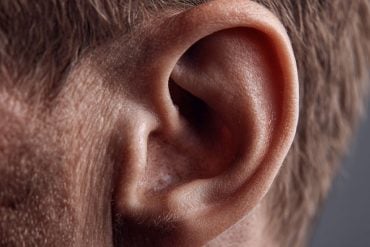Summary: A new survey finds that nearly 75% of parents experience sensory overload, when sounds, sights, and chaos from daily life overwhelm the brain. The most common triggers include children arguing, loud household noise, and clutter from toys and messes.
The study also found that married parents and those living in urban areas were more likely to feel overstimulated than their rural or single-parent counterparts. Experts recommend identifying sensory triggers and prioritizing rest to manage stress and protect family wellbeing.
Key Facts:
- Widespread Impact: 3 in 4 parents in urban areas report sensory overload; 55% in rural areas.
- Top Triggers: Children’s arguments, noise levels, and mess were leading causes.
- Self-Care Matters: Experts suggest downtime, calm spaces, and energy pacing to manage overload.
Source: Ann & Robert H. Lurie Children’s Hospital of Chicago
Sensory overload, or overstimulation through the five senses that feels like too much for the brain to handle, was reported by nearly three in four parents in Illinois, according to a survey from Ann & Robert H. Lurie Children’s Hospital of Chicago.
The top three causes of parental sensory overload were children arguing, loud noise level from children, and messiness from toys and clutter.
“Sensory overload in parents has received little research despite being a very common experience, as our survey revealed,” said the report’s lead author Marie Heffernan, PhD, Director of Voices of Child Health in Communities at Lurie Children’s and Assistant Professor of Pediatrics at Northwestern University Feinberg School of Medicine.
“Parents are often overwhelmed, and our previous work found that more than half of parents reported their stress level had increased since the COVID-19 pandemic.”
The survey on sensory overload included over 1,000 parents in Illinois from both urban and rural areas.
Parents living in metropolitan areas were more likely to report experiencing sensory overload (75 percent) compared with parents residing in more rural areas (55 percent).
The survey results show that mothers and fathers experienced sensory overload at about the same levels. The likelihood of sensory overload also did not differ among parents of young children and parents of teenagers.
Parents who were married, however, were more likely to experience sensory overload (76 percent) than single parents (67 percent).
The top causes of sensory overload in parents were:
“To combat sensory overload, parents can start by knowing their triggers so they can plan to avoid them.
“For example, parents can try to avoid scheduling back-to-back activities that will be overstimulating or demand a lot of their energy,” said co-author Carolyn Foster, MD, MS, a pediatrician at Lurie Children’s and Assistant Professor of Pediatrics at Northwestern University Feinberg School of Medicine.
“We also encourage parents to prioritize downtime and self-care, as well as taking a moment to calm the senses when they start to feel overwhelmed. This is important for optimizing the wellbeing of the entire family.”
Dr. Foster is the Yaeger Family Research Scholar at Lurie Children’s.
About this parenting and sensory neuroscience research news
Author: Marie Heffernan
Source: Ann & Robert H. Lurie Children’s Hospital of Chicago
Contact: Marie Heffernan – Ann & Robert H. Lurie Children’s Hospital of Chicago
Image: The image is credited to Neuroscience News







